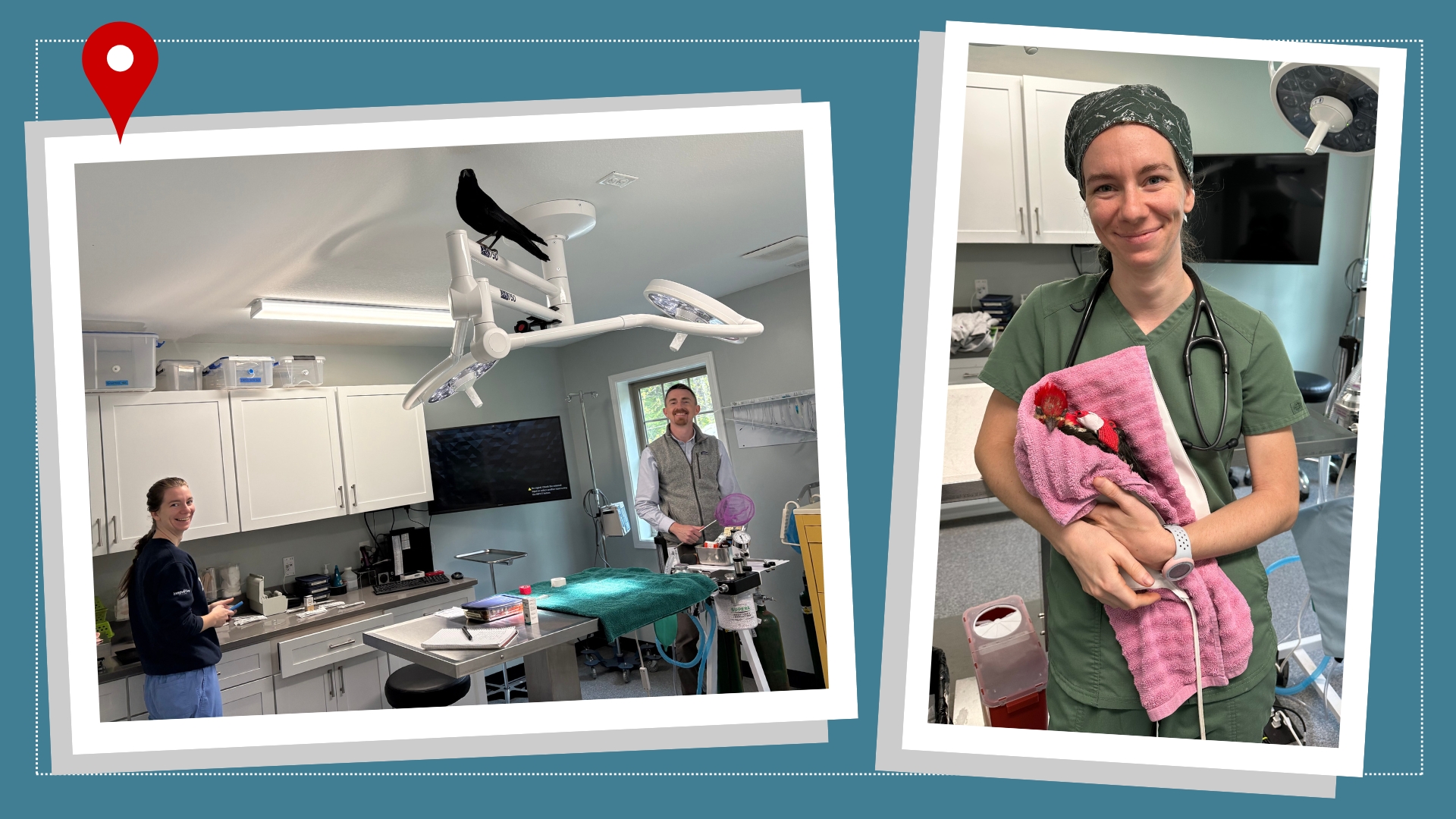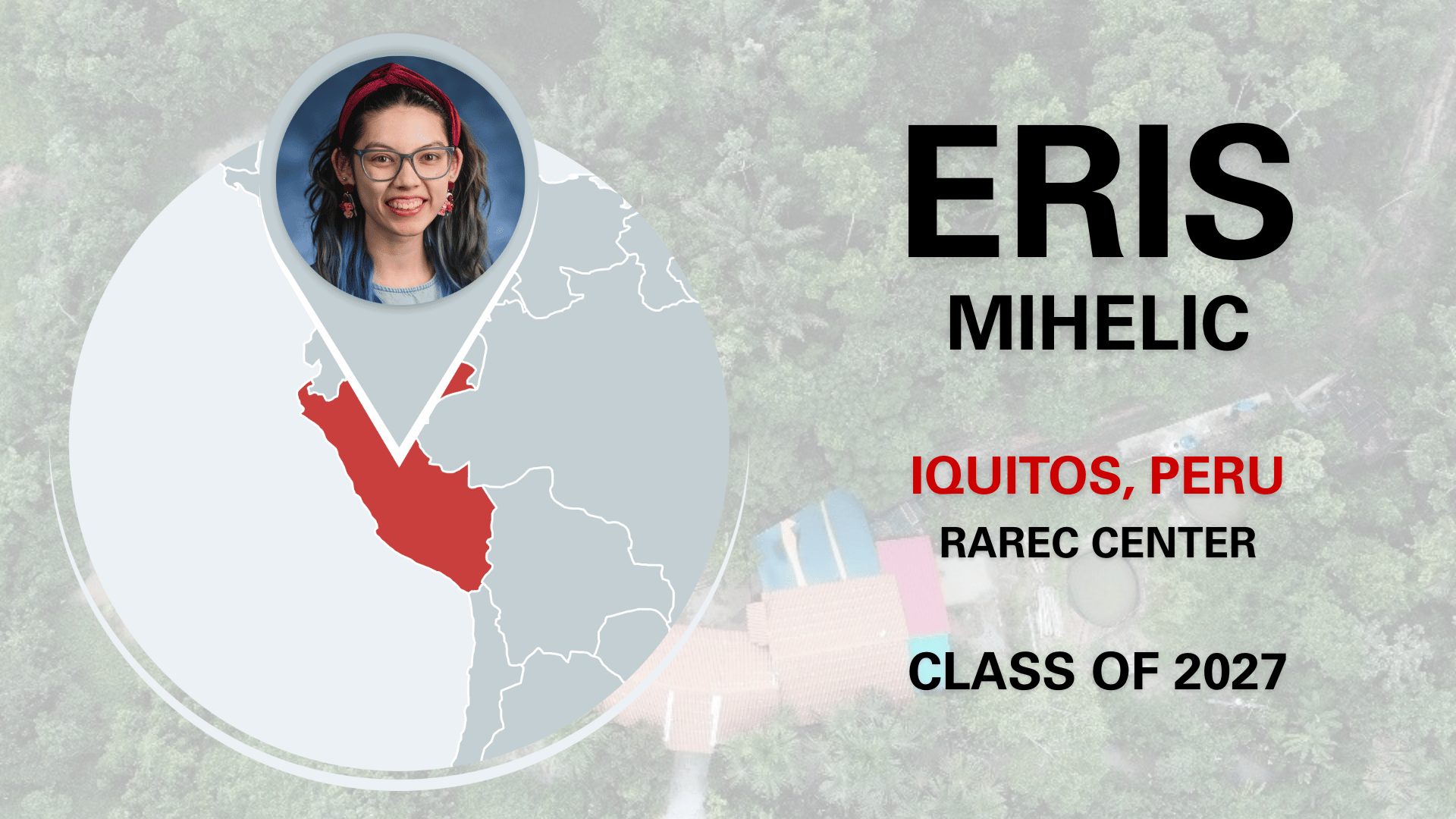Endangered Cockatoo Rises Anew, Thanks to NC State Cancer Experts
Facing treatment-resistant squamous cell carcinoma, a dedicated owner and resourceful veterinarians collaborate to test an innovative topical treatment with support from Petco Love and the Blue Buffalo Cancer Treatment Fund.
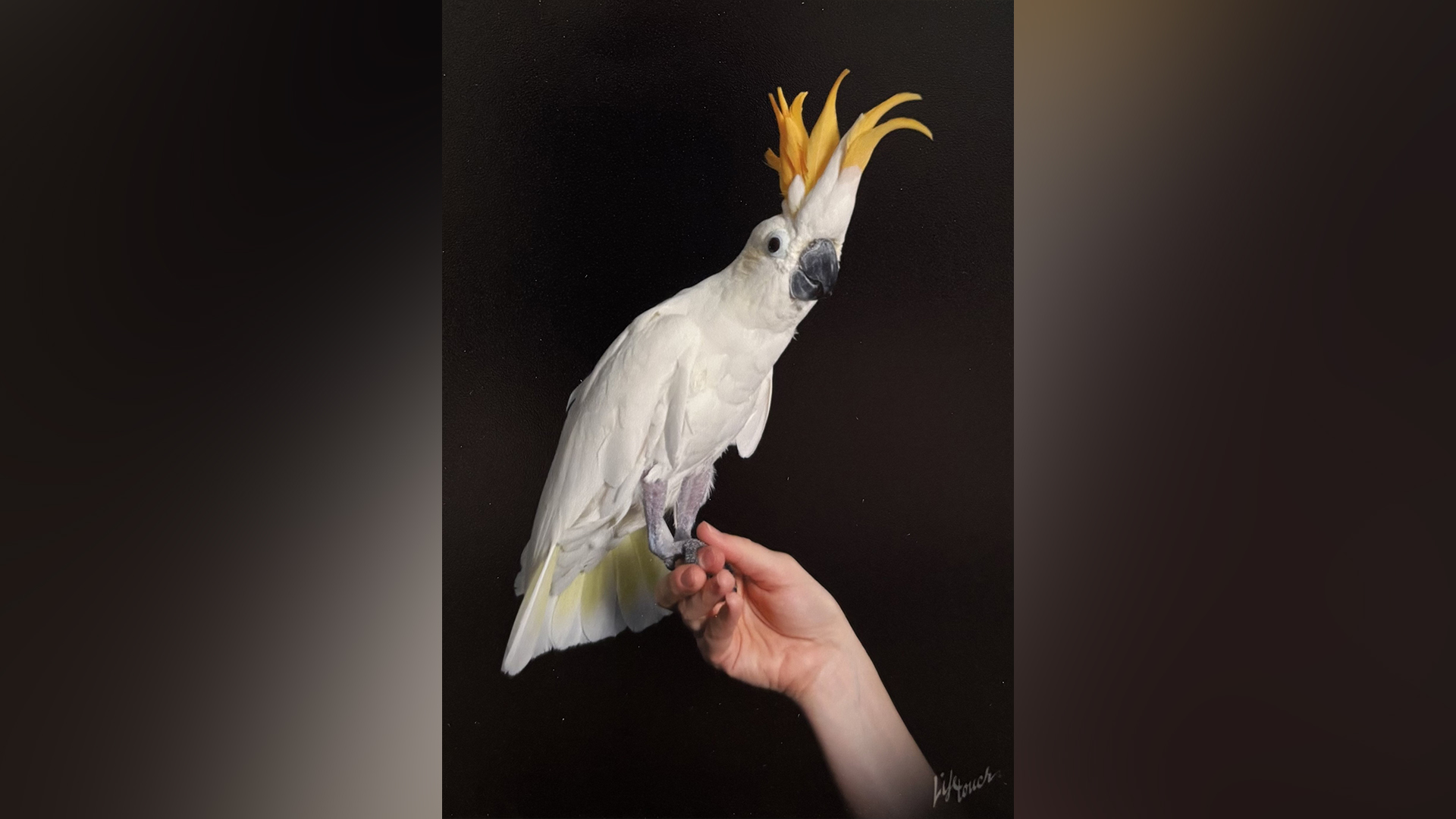
Over the past 34 years, Cynthia Van Der Wiele has had a constant companion at the dinner table, on road trips and during work meetings: her citron-crested cockatoo, Phoenix.
The inseparable duo’s story began at NC State in late 1989, when Van Der Wiele, then a graduate student at the College of Design, spotted Phoenix in a Raleigh pet shop, became enamored with the rare bird and soon withdrew $1,500 from her fledgling 401(k) to afford her.
“The smaller cockatoos live 40 to 60 years, and I wanted a pet that I could have my whole life,” says Van Der Wiele, who took Phoenix home in February 1990.
Conservationists estimate that there are fewer than 1,500 citron-crested cockatoos worldwide, and for Van Der Wiele, Phoenix is one of a kind. Now about 37 years old, Phoenix has accompanied Van Der Wiele through four graduate degrees — including two from NC State — and a career in environmental science that prompted a move from the Triangle to Atlanta in recent years.
Given the pair’s longstanding ties to Raleigh, it was fitting that Phoenix was referred to the NC State Veterinary Hospital when a previously removed mass on her head started to regrow in spring 2023.
NC State veterinarians diagnosed Phoenix with squamous cell carcinoma, a type of skin cancer, and worked to find an effective treatment plan when the cancer resisted surgery and radiation. With little oncology research available on Phoenix’s critically endangered species, in-house exotic animal oncology experts proposed an innovative topical treatment that has kept the carcinoma from growing.
Support from Petco Love and the Blue Buffalo Pet Cancer Treatment Fund has allowed Van Der Wiele and NC State veterinarians to explore Phoenix’s treatment options and made Phoenix’s visits from Atlanta more manageable for her family.
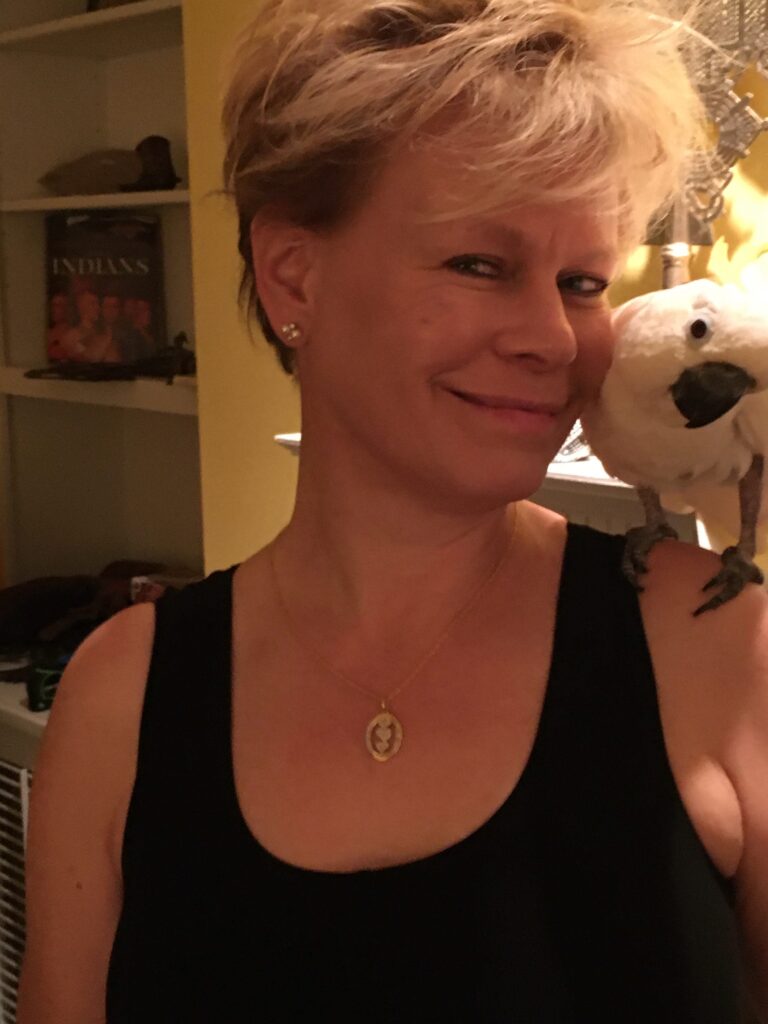
“Treatment for cancer in exotics is definitely challenging to begin with, so to take away the financial hardship for these owners to let them try these new, state-of-the-art treatments, it’s amazing,” says Dr. Tara Harrison, associate professor of exotic animal medicine and lead investigator of the Exotic Species Cancer Research Alliance, or ESCRA. “And we’re saving animals’ lives or providing owners additional time to enjoy with their pets.”
In November 2022, Van Der Wiele noticed a small, dark mass growing on Phoenix’s head beneath her crest. The bird’s primary veterinarian removed it and referred Phoenix to NC State when it had grown back by the following May.
Squamous cell carcinoma is the second most common cancer in birds in the ESCRA database, Harrison says. Treatment can be challenging because tumors usually appear in areas, like the mouth or the base of the tail, where it’s difficult to surgically remove all the surrounding malignant cells. Recurrence rates are high if complete surgical removal isn’t possible, so second-line treatments like radiation or chemotherapy are common.
Phoenix’s case was no different, with the mass located on the thin skin covering her skull. Surgeons at the NC State Veterinary Hospital removed as much of the tumor as possible in May 2023. Phoenix began a five-week course of radiation therapy that June that appeared to stop the cancer’s spread.
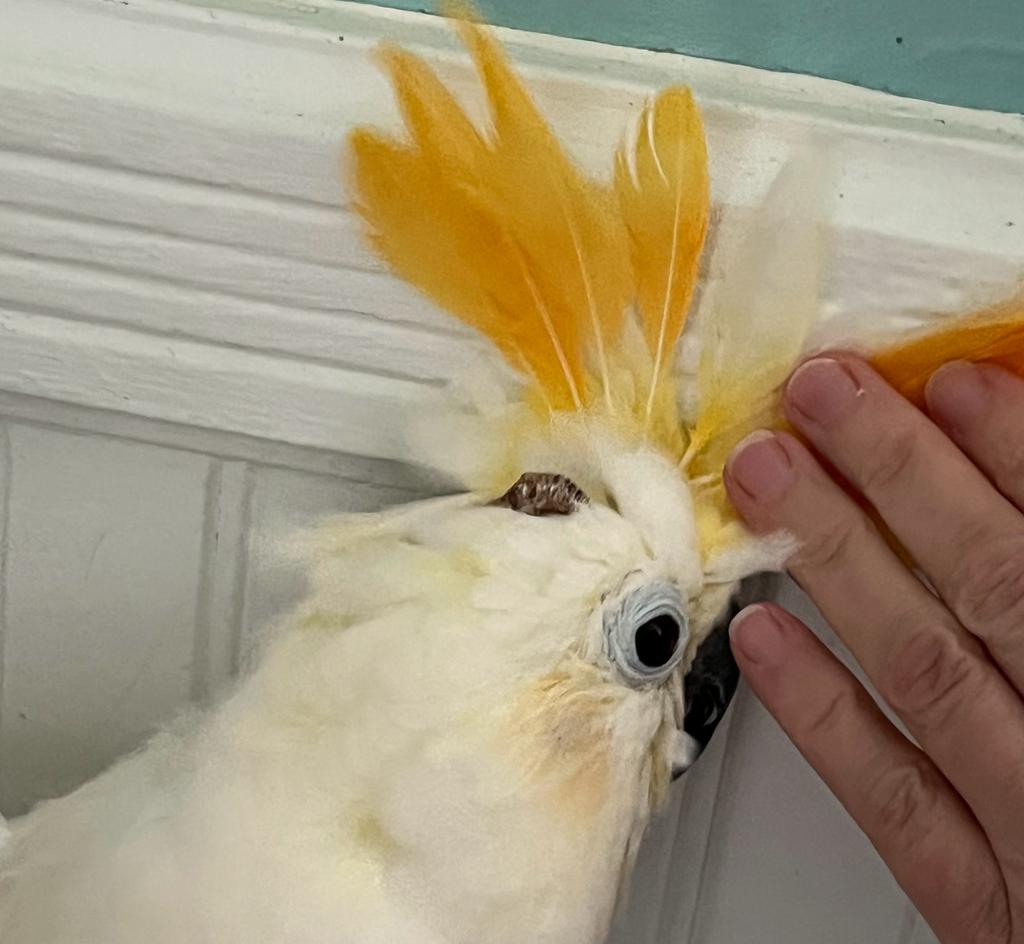
But four months later, Van Der Wiele noticed a scab-like spot reappear on Phoenix’s head, and a second mass soon emerged nearby. The carcinoma had persisted.
Harrison weighed various approaches, including electrochemotherapy or another round of radiation, but was concerned about the masses’ location, high radiation dosages and the odds for cancer recurrence.
She studied existing cancer research in birds and consulted Dr. Joanne Intile, an NC State associate clinical professor of medical oncology. Intile recommended imiquimod, a topical antineoplastic medication that research shows inhibits the growth of malignant cells in basal cell carcinoma’s early stages in humans and in squamous cell carcinoma in cats.
As a plus, Van Der Wiele could use the prescription cream on Phoenix at home, saving them the six-hour drive to NC State. Van Der Wiele started the imiquimod regimen in February. By April, Phoenix’s tumors had shrunk.
The medication continues to show success in controlling the cancer’s growth. Phoenix receives intermittent topical treatments at home and regularly visits NC State for follow-up appointments.
Seeing how promising imiquimod has been for Phoenix has inspired Harrison and the exotic animal medicine team to research the treatment’s efficacy in other birds with skin cancer. Phoenix’s case is also being entered into the Exotic Species Cancer Research Alliance’s treatment database, trusted by veterinarians across the globe.
“Had Ms. Van Der Wiele not been so dedicated and willing to let us try a new treatment, we wouldn’t be here,” Harrison says. “And by taking an active role in Phoenix’s treatment at home, what she’s doing is not only helping Phoenix but also many other birds.”
For Van Der Wiele, having NC State’s world-class avian and oncology experts just an email or call away has made a world of difference. She feels fortunate that their support included connecting her with the Petco funding, which has been invaluable over 19 months of treatment.
“It’s terrible that it happened to Phoenix, but advancing scientific knowledge is a good thing,” Van Der Wiele says. “And I feel like I’m getting her the best resources possible. I’m really grateful to NC State and their dedication to helping the people, pets and avian friends of North Carolina and beyond.”
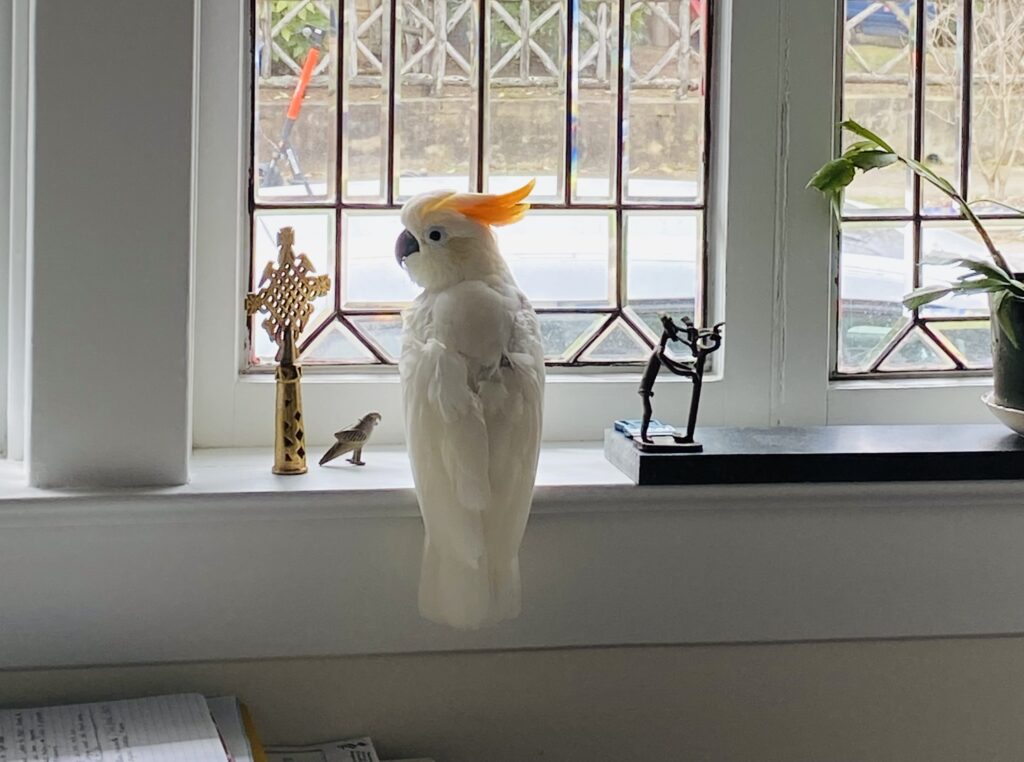
- Categories:

